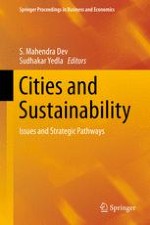2015 | OriginalPaper | Buchkapitel
11. E-Waste in Indian Cities, Menace, Resource, and Strategies for Sustainable Management
Aktivieren Sie unsere intelligente Suche, um passende Fachinhalte oder Patente zu finden.
Wählen Sie Textabschnitte aus um mit Künstlicher Intelligenz passenden Patente zu finden. powered by
Markieren Sie Textabschnitte, um KI-gestützt weitere passende Inhalte zu finden. powered by
